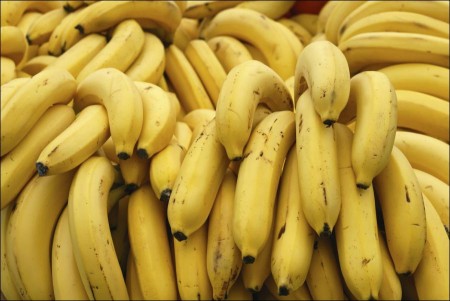To those in world trade names of countries and regions suggest their products. It has always been so. The East Indies four hundred years ago meant spice; two hundred years ago China meant silks and tea; Canada meant fur. The Caribbean to Queen Elizabeth meant gold–it was the route of the treasure ships of Spain–to Washington it meant sugar and molasses, and to our children it will suggest bananas.
New foods often make their way slowly, especially among older nations. The English are still behind the Scotch in their appreciation of the value of oats for human food; the potato came into its own in Germany only in the second half of the nineteenth century and Europe still looks upon maize as fit nourishment only for the lower animals and the poor. But even prejudice yields to proof. The development of the banana market illustrates both conservatism and its overthrow.
America only, among the important commercial countries of the globe, realizes the value of this new food. Location rather than adaptiveness, till recently, explained the fact. When refrigeration was unknown and fast steamships for freight service still a thing of the future bananas could be marketed only within areas easily accessible from the regions in which the fruit was produced. Large quantities grew wild, enormous amounts were consumed locally, but the surplus either went to waste or was used to fatten pigs, as is still the case with the inferior product.
Even in the United States, until a generation ago, the banana was a fruit counted a luxury rather than a valuable food. The beginning of the banana trade was made in 1866 by Mr. Carl B. Franc who imported on a small scale from the Panama region to New York. For some years he had a virtual monopoly on the Philadelphia and New York market but his enterprise did not develop permanence, and the credit for making the banana a feature of our fruit markets belongs to another pioneer, Captain Lorenzo D. Baker.
With the exception of the Canary Islands, all the countries producing large quantities of bananas for export border the Caribbean, and of those exported the United States consumes many times as much as any other country and far more than all the rest of the world combined.
Visits: 102



